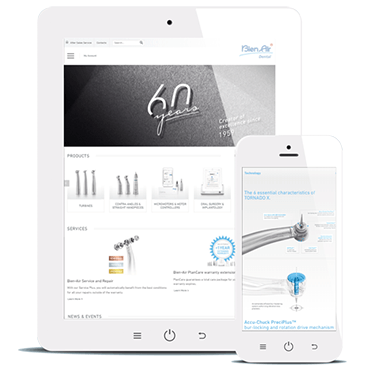Product recommendation engines
Recommendation engines are like a personal salesperson who knows your preferences better than you do yourself. Product recommendation engines increase sales and build long-term relationships with customers by understanding their unique needs.
Check out how we can help you: Free consultation

Understanding customer preferences and providing personalized recommendations has become a cornerstone of success for large enterprises. In this context, product recommendation engines play a crucial role, enabling companies to customize their offerings according to individual customer needs and preferences.
In an era where competition is just a few clicks away, personalization has become an essential differentiator for companies in the market. Product recommendation engines increase sales and build long-term relationships with customers by understanding their unique needs.
Through advanced algorithms and data analysis, these systems can customize offers in real-time, which translates into higher customer satisfaction and brand loyalty.
What are recommendation engines, and how do they work?
Recommendation engines are advanced recommendation systems based on machine learning algorithms that analyze user behavior data, such as purchase histories, products browsed, or preferences, to predict which products or services might be of most interest to a given customer.
These engines analyze patterns and preferences and generate personalized suggestions to increase customer engagement and encourage purchases.
Essential benefits for large enterprises of using recommendation engines:
- Personalization of offerings: Provide companies with personalized recommendations, which increases the attractiveness of the offer in the eyes of customers and the effectiveness of marketing.
- Increasing conversions: With personalized recommendations, users are more likely to buy, resulting in increased conversions and sales.
- Increased customer retention: Providing relevant recommendations allows companies to increase customer loyalty, resulting in a long-term increase in customer value (CLV).
- Better understanding of customers: Data analysis enables a deeper understanding of customer preferences and behavior, influencing strategic business decisions.
- Reduced costs for customer acquisition: By targeting recommendations more effectively, companies can achieve better results in marketing campaigns, leading to lower customer acquisition costs.
- Optimizing assortment: Analyzing data from recommendation engines can identify customer trends and preferences, facilitating decisions on product assortment.
Types of recommendation engines
Types of recommendation engines are different approaches and algorithms used in recommendation systems to suggest relevant products, content, or services to users based on their behavior, preferences, or profile. Here are some of the main types of recommendation engines:
Content-Based Filtering
Content-based filtering is one of the oldest and most basic types of recommendation engines. It works by analyzing the features and characteristics of products and comparing them with user preferences. In this approach, the crucial element is to create a user's profile based on information about their previous activities, such as products viewed, ratings, purchase histories, etc.
Then, using machine learning algorithms, the system tries to match products with similar characteristics to the user's preferences. The advantage of content-based filtering is that it does not require large amounts of data, which can be especially beneficial for new users or small e-commerce stores.
However, it can have limitations in recommending products outside of users' explicit preferences and lead to the so-called "bubble filter" effect, where a user will receive recommendations similar to the user's previous preferences, excluding potentially interesting products outside of that circle.
Collaboration-based filtering (Collaborative Filtering)
Collaborative Filtering, also known as CF, relies on user interaction analysis to generate recommendations. The system uses data on user ratings, purchases, or activities to identify similarities between different groups of users. Based on this, it recommends products or services that are popular among similar groups of users.
The main advantage of a collaboration-based filter is that it takes into account the users' preferences and behaviors, which can lead to more accurate recommendations, even in the absence of data on a specific user. However, it can be prone to the so-called cold start problem, where it can be challenging to generate personalized recommendations for new users or new products.
Contact us. We can help your business realize the potential of recommendation engines and achieve e-commerce success.
A hybrid approach combining both types
The hybrid approach combines the advantages of content-based filtering and collaborative filtering to offset their disadvantages and provide more precise and efficient recommendations. In this type of recommendation engine, the algorithms of both methods are used together to achieve synergy and a comprehensive understanding of user preferences.
An example of a hybrid approach could be a combination of content-based and collaborative recommendations such that content-based algorithms are first used to suggest initial recommendations, and then collaborative algorithms are used to adjust and improve those recommendations based on the activity of other users.
The hybrid approach allows for a much more flexible and precise delivery of recommendations, helping to improve efficiency and increase customer engagement on the e-commerce platform.
Challenges of implementing recommendation engines
Implementing recommendation engines can be challenging due to several technical and business factors. Simply implementing recommendation engines on e-commerce platforms can bring many benefits, but it also comes with some challenges:
Data analysis and cleaning
One of the key challenges in implementing recommendation engines is analyzing and cleaning the data that is the basis for generating recommendations. Data about users, products, and their interactions can often be highly variable, heterogeneous, and subject to errors.
Therefore, it is important to conduct a thorough data analysis to identify important features and understand existing patterns. It is also necessary to clean the data to remove duplicates, missing values, incorrect data, etc. Poor quality or incomplete data can affect the quality of recommendations and lead to the generation of erroneous suggestions.
Personalize recommendations for different customer segments
Every customer is unique and has different preferences. As a result, recommendation engines must be able to personalize their recommendations to different customer segments. Personalization plays a key role in making recommendations attractive and effective.
However, personalization requires sophisticated algorithms that can effectively analyze and use user data. The challenge is to adapt the algorithms so that they can generate personalized recommendations for individual and different customer groups or market segments.
Machine learning algorithms and scalability
Recommendation engines are based on advanced machine learning algorithms, which require proper implementation and customization. Choosing the right algorithms and parameters is crucial for accurate and effective recommendations. In addition, scalability is a significant challenge, especially for large enterprises handling large volumes of data and users.
Recommendation engines need to be able to efficiently process large data sets in real-time to provide current and dynamic recommendations. However, along with these capabilities come data security responsibilities. Companies must ensure proper practices for collecting, storing, and processing customer data, following applicable laws and regulations.
Data security is becoming a priority, as customers care about protecting their privacy and feel more secure in stores that take care of the security of their data. It is also worth remembering that the implementation of recommendation engines is not a one-time task, but a process of continuous improvement.
Companies should regularly monitor and update their recommendations to keep up with changing customer preferences and the dynamic e-commerce market. In conclusion, while implementing recommendation engines can be a challenge, they can bring significant benefits to companies by improving the customer experience and increasing sales efficiency.
The key to success is a balance between personalized recommendations and appropriate data security measures, which can benefit both companies and their customers.
Product recommendation engines - tool comparison
Several product recommendation engine tools on the market represent different approaches - from simple solutions to advanced systems using machine learning and AI. The choice of the right tool depends on several factors, such as the size of the company, budget, technical needs, and market specifics.
Below is a comparison of the most popular solutions.

How can we help?
Ideo Software offers comprehensive support in the field of recommendation engines. Our expertise in the field of e-commerce and the ability to tailor solutions to individual customer needs allows you to achieve significant growth and competitiveness in the market.
We not only advise you on choosing the right tool but also implement and monitor it to get the best results. Through data analysis and personalization capabilities, we help clients effectively implement recommendation engines and achieve significant results.
Our approach is based on an in-depth analysis of the client's needs and the market, which allows us to propose optimal solutions. We act as a partner who is committed to the client's success at every stage of recommendation engine implementation.
Our goal is to help companies achieve significant sales growth and competitiveness in the e-commerce market by realizing the full potential of recommendation engines. Contact us today to learn how we can help your company realize the potential of recommendation engines and achieve e-commerce success.
Contact us









